On 30th-31st October 2019, MaRCCI hosted the Eastern and Southern Africa Higher Education Centres of Excellence project Pre-Mid- term review Mission.
The meeting was held at Makerere University Agricultural Research Institute Kabanyolo, in the Post Graduate and Research facility constructed by the government under the AfD-HEST project.
The pre -mid-term review mission brought together Uganda’s ACE11 project PIs, Vice-Chancellors from the host universities, representatives of the World Bank, the Inter-University Council of East Africa (IUCEA) which is the coordinating unit, and officials from the Ministry of Education and Sports. The ACE II projects present included MaRCCI, ACALISE of Uganda Martyrs University, and PHARMABIOTRAC of Mbarara University.
The two-day meeting was characterized by presentations of cumulative progress made by ACEs and major challenges faced progress toward achieving Centers of Excellence Status and options for restructuring.
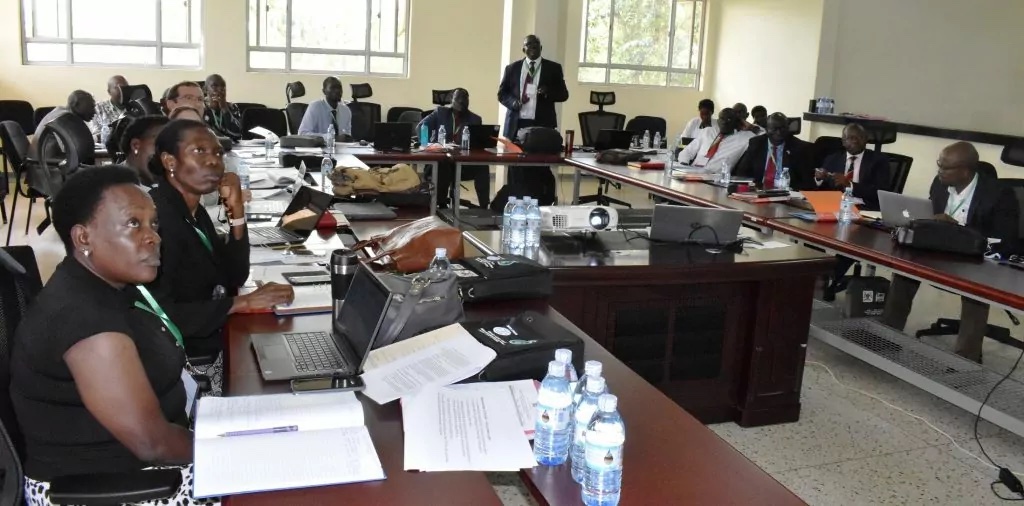
We can easily manage if we will only take, each day, the burden appointed to it. But the load will be too heavy for us if we carry yesterday’s burden over again today, and then add the burden of the morrow before we are required to bear it.
John Newton
The World Bank Task Team Leader Kirill Vasiliev said the meeting was in preparation for the ACEII Technical and Advisory meeting scheduled to take place in Lilongwe Malawi on 18th -19th November 2019.
The Malawi Technical and Advisory meeting will review the ACE II Program and identify strategies for improvement and lessons learned.
“This will be an opportunity for the ACEs to provide feedback on what is needed for them to further improve the quality of their higher education programs and research that could inform any mid-term corrections of the project.
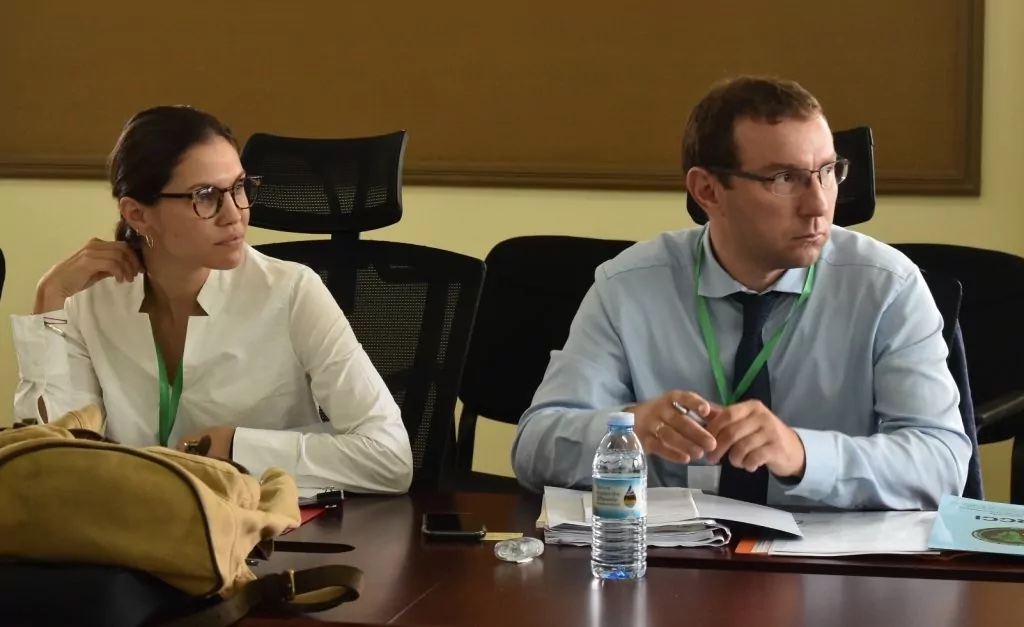
During the meeting, Centre leaders will get an opportunity to share their mid-term review reports highlighting achievements to date and challenges to the achievement of the objectives”, Part of the invitation letters to Centre Directors to Malawi authored by ACE II Executive Secretary Prof. Alexandre Lyambabaje reads.
Representing the Permanent Secretary Ministry of Education and Sports, the Commissioner for Education Planning and Policy Analysis at the Fredrick Matyama commended the ACEII projects on achievements recorded over the two and a half years. He however observed that the centers were facing challenges in terms of their relationships with universities and not scoring on regional and international accreditation of their programs.

I realized that the issue of the relationship between centers and universities is quite a challenge. The universities using the Universities and other Tertiary institutions Act take these projects as small unit within the department and yet the way operations are going on are major and they should be in a way that create a model that should help to restructure the whole university arrangement so that we have research and teaching transformed into practical realization. So, as a Ministry, we should assist in trying to see how this relationship can be modelled. For the case of Makerere, I realize there is AFRISA which is operating as an independent entity. So we could sort of benchmark how it was allowed to operate in a semi-autonomous way, so that we can have these Centres of Excellence operate that way
Fredrick Matyama
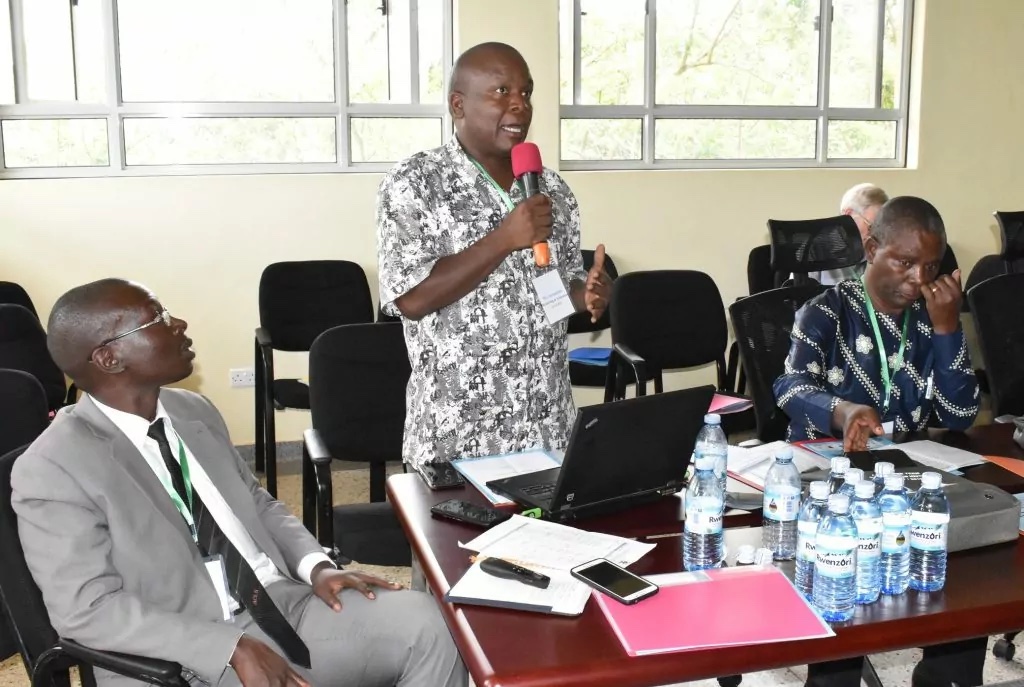
The Commissioner also observed that the other serious challenge and a matter for further discussion was the project expecting regional and international accreditation of their programs.
“My understanding is that the universities where these centers are offer degrees as universities. So, the issue of accreditation needs further discussion but I believe the project was expecting this to be independent centers so they would get other international accrediting agencies or universities to be accrediting the programs of these centers.
But now that these centers are part of the university then, I personally think we need to look into this aspect and see how to streamline this. As of now, I think international accreditation is a challenge given the fact that universities take these programs as their programs and are accredited by the National Council for Higher Education”, He said.
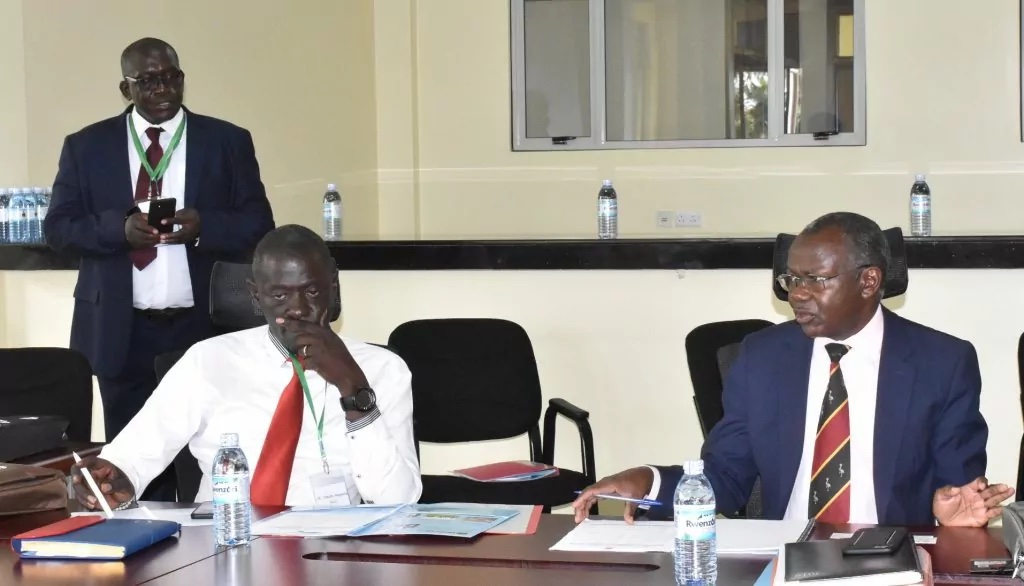
Dr. Timothy Ssengoba Musoke from the Ministry of Education described the ACEII project’s progress as satisfactory.
“I am satisfied with the progress that centers are making. They are doing well on all fronts in terms of outputs and also in terms of disbursement. It is very good work, it’s very good progress and it is promising and we also see that the centers are beginning to achieve that elements to show that they are leaders in their respective institutions”, He explained. He said the meeting discussed both challenges and solutions ahead of the planned project mid-term review.
“This is a stage of the project where you look back and see what was planned if it is still working or needs changes. This meeting identified things that need some changes an internal step to the big step to the project restructuring”, Said Dr. Musoke.
The key proposed areas for change according to Dr. Musoke include international accreditation of programs with the most outstanding challenge being regional accreditation given that the region seems to have no institution that has that mandate to accredit programs.
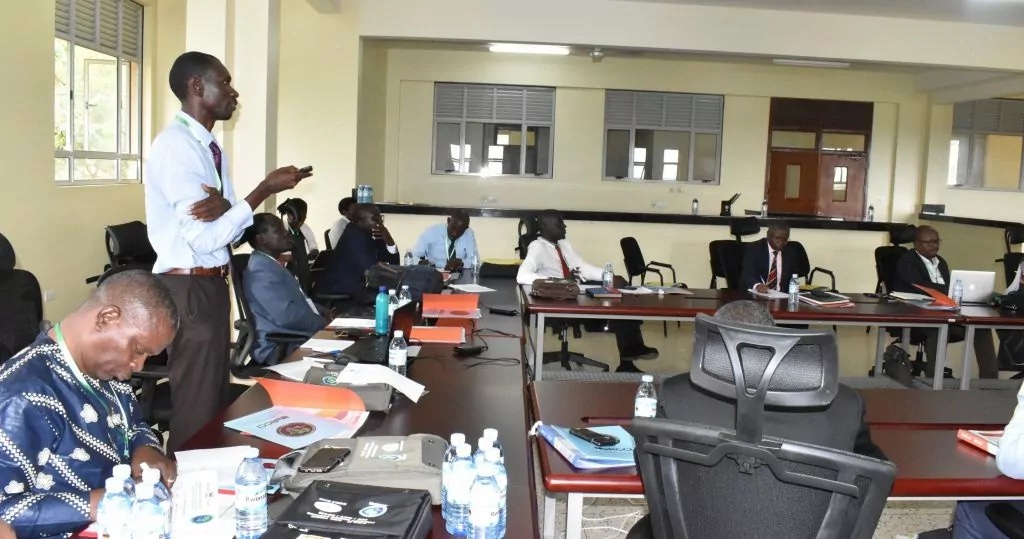
“There is a proposal that regional accreditation could be removed and institutions just benchmark themselves. The others are technical issues on having definitions clearly done and showing what results are needed. We are also going to propose if it is allowed that the financial agreement is amended to give room for ACEs to have advances”, Dr. Musoke said.
He added that other issues to be discussed include the need for autonomy of the centers granting some amount self-governance and a level of accounting to run their activities and engaging as government and institutions to see that staff working with projects are compensated for the extra time invested in the project.

Under the current agreement with the World Bank, staff working with centers in public universities are not entitled to any pay since they are paid a government salary. This, according to presentations from all the ACEs has led to staff shunning away from offering services to the centers.
In his key message to the ACEs. Dr. Musoke advised staff to continue with the good work
“Much as we are in a project mode, ACEs are undertaking activities that universities would have undertaken even without the projects. The objectives and results of the project are not outside those of the university. Don’t look at it as just a project but look at it as what your institutions would have done”. He stated.
